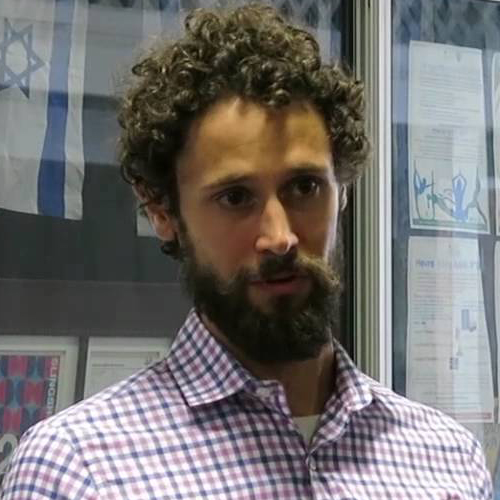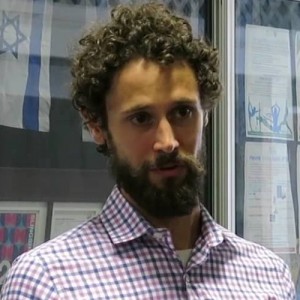Rabbi Andrew Kastner
It was really stimulating for me to re-read this section of Jewish Megatrends, now a few years deeper into my career. I have been fortunate to been influenced by many of the courageous and leading Jewish professionals who opened me to thinking about Jewish tradition as part of a broader marketplace and an ever evolving source that must be defined and redefined in the image of the its community and time. As a young rabbi and Jewish professional it was instructive for me, in reading the essay, how much I have integrated and in some cases taken for granted in the way I have developed my work around the four propositions. As someone who has not pursued work in the context of a synagogue, the four propositions have been guideposts to help me adapt my rabbinic training to shifting social/cultural realities.
My work has most been aligned with two of the four propositions, specifically, wisdom and social justice. When I first emerged from the yeshiva, though my training was designed to prepare for the world outside of the beit midrash, I quickly learned that in order to be an impactful and relevant leader in my community, I would have to recalibrate much of the Torah that I had learned to be comprehensible to the community outside of the beit midrash. My first professional appointment was as a campus rabbi with Hillel. With the exception of the few students who retained their ties to traditional Jewish commitments and sought halachic guidance from me, for most Jewish students, Torah and mitzvot did not have a claim on their lives. A significant part of my recalibration focused on the language that I used to communicate the value that Torah or Jewish wisdom could have on people’s lives. I didn’t feel a need to tout Jewish wisdom as being unique, though at times it is. What I focused on was identifying the essence or core value of a mitzvah and communicating its import in contemporary terms as opposed to as a religious mandate. In this way, identifying essential, value based, lessons as well as identifying this as “wisdom”, broadens the accessibility of the teaching to connect with a wider and more diverse market.
The second proposition that has been aligned with my work has been social justice with a focus on food justice and environmental sustainability. This focus on social justice has been a community organizing platform that has paralleled Generation X and Millennial’s interest in being engaged in civil society and responding to the most urgent social issues of their time. The Jewish community’s involvement in these issues has communicated the ability for the tradition to evolve and maintain its central commitment to advancing justice and equity in society. In many instances the social justice platform has been able to engage community beyond a particular social cause. While it is the initial cause that might draw together a like-minded community it also opens up the possibility for that community to engage in Jewish prayer, learning and holiday celebrations.
My work has also sought to advance an area that is not addressed in the four propositions, specifically how to foster a culture of adaptation and Jewish innovation. One of the most inspiring moments of my early Jewish education was in learning about the foundations of Rabbinic Judaism and Yochanan ben Zakai. The founding of the current and most prolific chapter of Jewish civilization on the principle of engaging adaptive strategies to retain connection to the past while maintaining relevance to the present and future has always stuck with me and at many times, seemed in contrast to the Jewish institutional landscape. I see great urgency and promise in supporting funding opportunities and thought partnership for those in the Jewish innovation space, charting new ways to explore community engagement and cultural mashups. Perhaps more importantly, I see urgency in supporting established Jewish institutions to integrate strategies and nurture a culture of adaptability and openness to change. Programmatic opportunities appear to be amongst the low hanging fruit of dipping one’s toe into adaptive frameworks. Additionally, I see significant opportunity with regard to advancing adaptive strategies in the departments of financial development, cultivating the next generation of donors as well as integrating Chief Innovation Officers or directors of innovation departments in Federations and JCCs. While change is difficult because it requires encountering loss, there is perhaps no greater Jewish value than the courage to be adaptive.
____________________
Rabbi Andrew Kastner received his rabbinic ordination from Yeshivat Chovevei Torah. He has been working on projects that focus on building connections to community, place and Jewish wisdom. Andrew currently lives in Cleveland, Ohio with his family and is working to integrate successful community engagement models from the Coasts to the Midwest.



